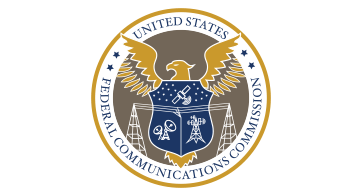News Update - May 2024
USAC Files Data On Third Quarter 202 USF Contribution Base: $8,302,171,099
May 31, 2024 – The Universal Service Administrative Company (USAC) has filed projected universal service fund (USF) contribution base data for the third quarter of calendar year 2024. The data will be used to determine the next USF contribution factor. For the third quarter of 2024, USAC has determined that the total projected collected interstate and international end user revenue base for the USF support mechanisms is $8,302,171,099. The 3Q 2024 contribution base data was calculated using projected revenue amounts for July - September 2024 reported by telecommunications service providers on their FCC Forms 499-Q which were due May 1, 2024.
For the third quarter of 2024, USAC received projected revenue data from 3,150 USF contributors who filed the Form 499-Q. USAC estimated revenue data for 238 non-de minimis service providers that had previously submitted Form 499-Q information to USAC, but failed to make the latest filing. After the Federal Communications Commission (FCC) approves the total USF contribution base, the quarterly funding requirements for USF support mechanisms, and projected USF administrative costs, the FCC will establish a USF contribution factor for the third quarter of 2024. The new contribution factor will be announced by an FCC Public Notice. USAC will then bill USF contributors on a monthly basis for their individual obligations based on the approved contribution factor.
Final Agenda For FCC June 6, 2024 Open Meeting
May 30, 2024 – The Federal Communications Commission has issued the following final agenda for its open meeting scheduled for Thursday, June 6, 2024 at 10:30 am:
Reporting on Border Gateway Protocol Risk Mitigation Progress – The Commission will consider a Notice of Proposed Rulemaking to increase the security of the information routed across the internet and promote national security by requiring broadband providers to report on their progress in addressing vulnerabilities in the Border Gateway Protocol. (PS Docket Nos. 24-146; 22-90)
Establishing a Schools and Libraries Cybersecurity Pilot Program – The Commission will consider a Report and Order that would establish the Schools and Libraries Cybersecurity Pilot Program and provide up to $200 million in Universal Service Fund (USF) support available to eligible schools and libraries, over a three-year period, to defray the costs of eligible cybersecurity services and equipment and help the Commission evaluate the use of the USF to support these services and equipment. (WC Docket No. 23-234)
Letters of Credit for Recipients of High-Cost Competitive Bidding Support – The Commission will consider a Notice of Proposed Rulemaking that would seek comment on changes to the rules for letters of credit required for recipients of high-cost support authorized through a competitive process. (WC Docket Nos. 10-90, 18-143, 19-126, 24-144; AU Docket Nos. 17-182, 20-34; GN Docket No. 20-32)
Amendment of the Commission’s Rules to Advance the Low Power Television, TV Translator and Class A Television Service – The Commission will consider a Notice of Proposed Rulemaking regarding updates and amendments to the Commission’s rules to address advances in the LPTV Service. (MB Docket Nos. 24-147, 24-148)
T-Mobile Acquiring Nearly All Of US Cellular’s Wireless Operations For $4.4 Billion
May 28, 2024 – T-Mobile US, Inc. and United States Cellular Corporation (US Cellular) have announced that they have entered into an agreement in which T-Mobile will acquire nearly all of US Cellular’s wireless operations for approximately $4.4 billion.
T-Mobile is the third-largest U.S. wireless carrier, with roughly 117.9 million subscribers as of the end of 2023. US Cellular, headquartered in Chicago, provides mobile wireless to 4.5 million retail connections in 21 states.
The deal includes US Cellular’s wireless customers, stores, and 30% of the company’s spectrum assets. US Cellular will retain ownership of approximately 70% of its spectrum portfolio across several spectrum bands and its towers.
As part of the agreement, T-Mobile will enter into a long-term arrangement to lease space “on a minimum of 2,015 incremental towers owned by US Cellular and extend the lease term for the approximately 600 towers where T-Mobile is already a tenant.”
Telephone and Data Systems, Inc. (TDS), which owns 83% of US Cellular, has delivered its written consent approving the transaction. The $4.4 billion purchase price includes a combination of cash and up to approximately $2 billion of assumed debt. The transaction is subject to customary closing conditions and certain regulatory approvals, and is expected to close in mid-2025. T-Mobile’s press release provides the following details on the transaction:
T-Mobile will pay approximately $4.4 billion for the assets being acquired from UScellular in the transaction in a combination of cash and up to $2.0 billion of debt to be assumed by T-Mobile through an exchange offer to be made to certain UScellular debtholders prior to closing. To the extent any debtholders do not participate in the exchange, their bonds will continue as obligations of UScellular and the cash portion of the purchase price will be correspondingly increased. Following the closing of the transaction, UScellular will retain ownership of its other spectrum as well as its towers, with T-Mobile entering into a long-term arrangement to lease space on at least 2,100 additional towers being retained. T-Mobile does not expect the transaction to impact the company’s 2024 guidance or 2024 authorized shareholder return program. T-Mobile expects this transaction will yield approximately $1.0 billion in effective total opex and capex annual run rate cost synergies upon integration, with total cost to achieve the integration currently estimated at between $2.2 billion to $2.6 billion. The company plans to reinvest a portion of synergies toward enhancing consumer choice, quality and competition in the wireless industry. The transaction, which is subject to the satisfaction of customary closing conditions and receipt of certain regulatory approvals, is expected to close in mid-2025.
US Cellular’s press release provides the following additional details on the transaction:
In connection with the agreement, T-Mobile will enter into a new long-term MLA on a minimum of 2,015 incremental towers owned by UScellular and extend the lease term for the approximately 600 towers where T-Mobile is already a tenant. This will ensure continued, uninterrupted service for UScellular customers following the transaction and create a long-term contracted revenue stream from a strong anchor tenant for at least 15 years after the close of the transaction. With the inclusion of the towers occupied by other existing third-party tenants, UScellular's tower assets will represent one of the largest and most attractive tower businesses in the United States. UScellular retains approximately 70% of its spectrum portfolio across several spectrum bands and will seek to opportunistically monetize these retained assets. UScellular also retains significant equity method investment interests, primarily from its wireless partnerships, that generated $158 million of equity method income and $150 million in distributions in 2023.
FCC Fines Lingo Telecom $2 Million For Facilitating Illegal Deepfake Generative AI Robocalls
May 28, 2024 – The Federal Communications Commission’s (FCC or Commission) has proposed a penalty of $2,000,000 against Lingo Telecom, LLC for facilitating illegal deepfake generative artificial intelligence (AI) robocalls. The Notice Of Apparent Liability For Forfeiture and $2 million fine was issued after an FCC Enforcement Bureau investigation found that Lingo Telecom applied “incorrect Secure Telephone Identity Revisited and Signature-based Handling of Asserted information using toKENs (STIR/SHAKEN) attestations in apparent violation of section 64.6301(a) of the Commission’s rules.” The Notice provides the following further explanation of Lingo’s conduct:
Specifically, Lingo, in a failure to utilize reasonable “Know Your Customer” (KYC) protocols, applied incorrect STIR/SHAKEN attestations to spoofed robocalls carrying a deepfake2 generative artificial intelligence (AI) voice message purporting to be from the president of the United States (Deepfake Message) that targeted New Hampshire primary election voters two days before the state’s 2024 Democratic Presidential Primary Election (Primary Election). The Deepfake Message told primary election voters not to vote in the upcoming Primary Election.
FCC Imposes $6 Million Fine For Illegal Robocalls Targeting New Hampshire Voters
May 24, 2024 – The Federal Communications Commission’s (FCC or Commission) has issued a Notice Of Apparent Liability For Forfeiture containing a $6,000,000 penalty against Steve Kramer for perpetrating an illegal robocall campaign in apparent violation of the Truth in Caller ID Act of 2009 and section 64.1604 of the FCC’s rules. Mr. Kramer’s scheme targeted potential New Hampshire voters two days before the state’s 2024 Democratic Presidential Primary Election. An FCC Enforcement Bureau investigation found “that Kramer knowingly caused thousands of illegal prerecorded voice robocalls to be transmitted using misleading and inaccurate caller ID information with the intent to defraud and cause harm.” In the Notice, the FCC provides the following details on Mr. Kramer’s illegal robocall scheme:
Kramer’s illegal robocalls carried a deepfake generative artificial intelligence (AI) voice message that imitated U.S. President Joseph R. Biden, Jr.’s voice and encouraged potential voters not to vote in the upcoming Primary Election (Deepfake Message). The caller identification (caller ID) information was inaccurate and misleading as the calls transmitted the telephone number associated with a prominent New Hampshire political operative (NHPO); in reality, Kramer—without the knowledge or consent of the individual identified in the caller ID was responsible for the spoofed robocalls.
FCC Chairwoman Circulates Order To Update Broadband Deployment Data Collection Processes
May 22, 2024 – Federal Communications Commission Chairwoman Jessica Rosenworcel has announced that she has circulated an Order and Declaratory Ruling to her fellow FCC Commissioners that updates the FCC’s biannual broadband deployment data collection and audit processes, and proposes further updates to the FCC’s verification processes for its National Broadband Map. The item circulated by Chairwoman Rosenworcel, if ultimately approved, would do the following:
Clarifies and strengthens agency audit procedures to ensure that the Commission can better validate service providers’ availability data;
Creates a process that better accounts for changes in network deployments over time while protecting the integrity of the availability data and results of challenges; and
Proposes modifications to data collection requirements based upon lessons learned, as well as enhancements to agency data validation processes in order to continue to improve the precision of the underlying Broadband Serviceable Locations Fabric and broadband availability data.
CISA Official Warns FCC About SS7 & Diameter Protocol Vulnerabilities In U.S. Communications Networks
May 16, 2024 – An official with the Cybersecurity and Infrastructure Security Agency (CISA) has filed comments with the Federal Communications Commission (FCC) that warn of Signaling System 7 (SS7) and Diameter protocol vulnerabilities in the U.S. that can be used to obtain unauthorized access to consumers’ location data. Also, the comments state that some small U.S. companies may have leased Global Titles to entities outside of the U.S. A Global Title is an address used for routing signaling messages on telecommunications networks. In addition to unauthorized location tracking, the comments indicate there may be other SS7 and Diameter exploits that enable “(1) the monitoring of voice and text messages, (2) the delivery of spyware to targeted devices, and (3) the influencing of U.S. voters by overseas countries using text messages.” The official filed the comments in a personal capacity, not on behalf of CISA. The comments were filed in response to the FCC’s Public Safety And Homeland Security Bureau’ March 2024 Public Notice requesting comment on the “implementation of measures to prevent location tracking via the Diameter and Signaling System 7 security protocols.” Initial comments were due April 26, 2024. Reply comments are due May 28, 2024.
FCC Announces Tentative Agenda For June 2024 Open Meeting
May 16, 2024 – Federal Communications Commission Chairwoman Jessica Rosenworcel has announced the following tentative agenda for the FCC’s open meeting scheduled for Thursday, June 6, 2024:
Reporting on Border Gateway Protocol Risk Mitigation Progress – The Commission will consider a Notice of Proposed Rulemaking to increase the security of the information routed across the internet and promote national security by requiring broadband providers to report on their progress in addressing vulnerabilities in the Border Gateway Protocol. (PS Docket Nos. 24-146; 22-90)
Establishing a Schools and Libraries Cybersecurity Pilot Program – The Commission will consider a Report and Order that would establish the Schools and Libraries Cybersecurity Pilot Program and provide up to $200 million in Universal Service Fund (USF) support available to eligible schools and libraries, over a three-year period, to defray the costs of eligible cybersecurity services and equipment and help the Commission evaluate the use of the USF to support these services and equipment. (WC Docket No. 23-234)
Letters of Credit for Recipients of High-Cost Competitive Bidding Support – The Commission will consider a Notice of Proposed Rulemaking that would seek comment on changes to the rules for letters of credit required for recipients of high-cost support authorized through a competitive process. (WC Docket Nos. 10-90, 18-143, 19-126, 24-144; AU Docket Nos. 17-182, 20-34; GN Docket No. 20-32)
Amendment of the Commission’s Rules to Advance the Low Power Television, TV Translator and Class A Television Service – The Commission will consider a Notice of Proposed Rulemaking regarding updates and amendments to the Commission’s rules to address advances in the LPTV Service. (MB Docket Nos. 24-147, 24-148)
Sunshine Notice – FCC Final Agenda For May 23, 2024 Open Meeting
May 16, 2024 – The Federal Communications Commission has released the final agenda for its open meeting scheduled for Thursday, May 23, 2024 at 10:30 a.m. ET:
Promoting the Integrity and Security of Telecommunications Certification Bodies, Measurement Facilities, and the Equipment Authorization Program – The Commission will consider a Notice of Proposed Rulemaking to strengthen requirements and oversight relating to telecommunications certification bodies and measurement facilities to help ensure the integrity of these entities for purposes of our equipment authorization program, to better protect national security, and to advance the Commission’s comprehensive strategy to build a more secure and resilient communications supply chain. (ET Docket No. 24-136)
Media Bureau Restricted Adjudicatory Matter – The Commission will consider a restricted adjudicatory matter from the Media Bureau.
Enforcement Bureau Action – The Commission will consider an enforcement action.
Enforcement Bureau Action – The Commission will consider an enforcement action.
Enforcement Bureau Action – The Commission will consider an enforcement action.
Enforcement Bureau Action – The Commission will consider an enforcement action.
FCC Chairwoman Circulates NPRM On Border Gateway Protocol Security Rules For Large Broadband Providers
May 15, 2024 – Federal Communications Commission Chairwoman Jessica Rosenworcel has circulated a Notice of Proposed Rulemaking (NPRM) to the other FCC Commissioners which proposes rules “requiring the largest broadband providers to file confidential reports on Border Gateway Protocol (BGP) security.” Data from the confidential reports will enable the FCC and its national security partners to “collect more up-to-date information about this critical internet routing intersection.” If approved during the FCC’s June 2024 open meeting, the NPRM would formally propose the following:
All broadband internet access service (BIAS) providers must develop plans for implementing BGP security measures, and a select number of the largest broadband providers will file those plans with the FCC as well as file quarterly data reports;
BIAS providers must develop BGP Routing Security Risk Management Plans (BGP Plans) that describe in detail their specific progress, and plans for, implementing BGP security measures that utilize the Resource Public Key Infrastructure;
The nine largest service providers file their BGP Plans confidentially with the Commission as well as file publicly available quarterly data that would allow the Commission to measure progress in the implementation of RPKI-based security measures and assess the reasonableness of their BGP Plans; and
Request further comment on other measures related to implementing RPKI-based security.
BGP is the technology used for routing information through the physical and digital infrastructure of the internet. In February 2022, the FCC released a Notice Of Inquiry (NOI) to “begin an inquiry into the vulnerabilities of the Internet’s global routing system.” In the NOI, the FCC sought “comment on vulnerabilities threatening the security and integrity of the Border Gateway Protocol (BGP), which is central to the Internet’s global routing system, its impact on the transmission of data from email, e-commerce, and bank transactions to interconnected Voice-over Internet Protocol (VoIP) and 9-1-1 calls, and how best to address them.”
FCC Directs USAC To Fully Fund All E-Rate Category 1 & 2 Requests For 2024
May 14, 2024 – The FCC’s Wireline Competition Bureau has announced that there is sufficient funding available to fully meet the estimated demand for category one and category two funding requests for E-Rate Program supported services in 2024. Accordingly, the Bureau has directed the Universal Service Administrative Company’s (USAC) to fully fund eligible category one and category two E-Rate requests submitted for funding year 2024. USAC previously estimated that for funding year 2024, the total demand for category one services is $1.921 billion and category two services is $1.318 billion ($3.239 billion estimated total). The Bureau previously announced that the E-Rate program inflation-based cap for funding year 2024 is $4.94 billion, while USAC has estimated that $500 million in unused funds from prior funding years is available for use in E-Rate funding year 2024. The Bureau has directed USAC to use $490 million in unused E-Rate funds to help fully meet 2024 demand, and reserve the remaining carry forward funds for future E-Rate use.
FCC Authorizes Resound Networks To Receive CAF II Support Transferred From Echo Wireless Broadband
May 10, 2024 – The FCC’s Wireline Competition Bureau has authorized Resound Networks, LLC to begin receiving Connect America Fund Phase II auction (CAF Phase II) support that was transferred to Resound from Echo Wireless Broadband, Inc. The CAF Phase II support and associated obligations to serve eligible areas in Texas and New Mexico were included as part of a transfer of a domestic section 214 authorization from Echo Wireless Broadband to Resound which was approved in May 2023. The Bureau’s Public Notice contains the conditions up which Resound is authorized to receive the support. Among other things, the Bureau explains that the following conditions apply:
As a condition of this authorization, Resound assumes sole responsibility for complying with universal service fund requirements and Commission rules, regardless of any preexisting or reasonably foreseeable conditions that could impact Resound’s ability to meet its obligations in the future, including any technical, marketplace, and on-the-ground conditions. Resound must also meet all of the administrative, performance, and deployment obligations and deadlines associated with the acquisition of the CAF Phase II support areas, including the requirement to deploy voice and broadband service meeting minimum standards to 40% of its defined deployment obligation by the end of 2022, 60% of all locations by the end of 2023, 80% by the end of 2024, and 100% by 2025.
FCC Announces Certain RDOF Census Blocks Are Eligible For Other Funding Programs
May 10, 2024 – The FCC’s Wireline Competition Bureau has released a Public Notice announcing that certain Rural Digital Opportunity Fund (RDOF) census block groups (CBGs) in Arkansas, Kentucky, Michigan, Missouri, West Virginia, and Wisconsin are now eligible for other funding programs. Affiliates of Charter Communications, Inc. and Altice USA, Inc. were awarded RDOF funding for the CBGs, but the companies have notified the FCC that they have defaulted on their RDOF commitments.
Charter Fiberlink – Michigan, LLC (Charter Fiberlink Michigan) (Study Area Code (SAC) 319053), Charter Fiberlink – Missouri, LLC (Charter Fiberlink Missouri) (SAC 429051), and Charter Fiberlink CCO, LLC (Charter Fiberlink CCO) (SAC 339064) (collectively Charter) have notified the FCC that they will not fulfill their commitment to offer voice and broadband service to certain CBGs within their RDOF supported service areas in Michigan, Missouri, and Wisconsin.
TCA Communications, LLC (TCA Communications) (SAC 409059), Cebridge Telecom KY, LLC (Cebridge Telecom KY) (SAC 269062), and Cebridge Telecom WV, LLC (Cebridge Telecom WV) (SAC 209040) (collectively, Altice) have notified the FCC of their decisions to withdraw from the RDOF support program in all the CBGs covered by their authorized winning bids in Arkansas, Kentucky, and West Virginia.
Mergers & Acquisitions: Private Equity Firm Searchlight Capital Partners Acquiring Consolidated Communications
May 7, 2024 – The FCC’s Wireline Competition Bureau is seeking comment on a Section 214 application filed by Consolidated Communications Holdings, Inc. (Consolidated) and Condor Holdings LLC (Condor), requesting approval for the transfer of control of Consolidated to Condor. Comments are due on or before May 21, 2024. Reply comments are due May 28, 2024.
Consolidated, a Delaware corporation, through its subsidiaries, provides service as an incumbent local exchange carrier (LEC) or competitive LEC in certain areas of Alabama, California, Colorado, Florida, Georgia, Illinois, Iowa, Kansas, Maine, Massachusetts, Minnesota, Missouri, New Hampshire, New York, North Dakota, Ohio, Oklahoma, Pennsylvania, South Dakota, Texas, Vermont, and Wisconsin. Many of the subsidiaries are authorized as Eligible Telecommunications Carriers (ETCs), and some have been awarded Rural Digital Opportunity Fund Phase I Auction (RDOF) funding for a total of 246 census block groups across seven states: Florida, Illinois, Maine, Minnesota, New Hampshire, Texas, and Vermont.
Condor, a Delaware limited liability holding company, was formed for the purposes of the proposed transaction and is a wholly-owned subsidiary of Searchlight III CVL, L.P. In close proximity to the close of the proposed transaction, Searchlight III CVL, L.P. will be converted into a limited liability company.
Upon completion of the transaction, Condor will thus become the direct parent of Consolidated and the indirect parent of Consolidated’s subsidiaries, and Consolidated, which is currently a publicly traded company (NASDAQ: CNSL), will become privately held.
FCC Releases Net Neutrality Order
May 7, 2024 – The Federal Communications Commission (FCC) has released its recently-approved net neutrality order, which consists of a Declaratory Ruling, Order, Report And Order, And Order On Reconsideration. The item was adopted by the FCC on a 3-2 vote on April 25, 2024. In the Declaratory Ruling, the FCC reclassifies broadband Internet access service as a telecommunications service under Title II of the Communications Act of 1934. In the Order, the FCC forbears from applying certain Title II provisions and FCC regulations to broadband Internet access services (such as no rate regulation, no tariffing, no unbundling of last-mile facilities, and no cost accounting.) In the Report And Order, the FCC adopts its net neutrality rules: no blocking, throttling, or paid prioritization; a general conduct standard designed to prevent deployment of new practices that would harm Internet openness; and certain enhancements to the transparency rule. In the Order On Reconsideration, the FCC grants certain petitions seeking reconsideration of the 2020 RIF Remand Order to the extent consistent with and described in the Order, and dismisses certain other petitions.
FCC Updates Guidance On Location And Broadband Coverage Data Used For Enhanced A-CAM Support & Deployment Obligations
May 3, 2024 – The FCC’s Wireline Competition Bureau has issued new guidance regarding location and broadband coverage information for recipients of Enhanced Alternative Connect America Model (Enhanced A-CAM) support. The guidance clarifies which Fabric location and Broadband Data Collection (BDC) availability data will be used to determine Enhanced A-CAM recipients’ final deployment obligations and support amounts.
The Enhanced A-CAM mechanism will provide a 15-year period of support beginning in 2024 to rural carriers in exchange for deploying broadband service of at least 100/20 Mbps speeds to unserved locations and maintaining or improving existing 100/20 Mbps broadband service. Carriers were required to make their elections no later than October 1, 2023. A total of 368 rural communications carriers have been authorized to receive model-based Enhanced A-CAM support. Enhanced A-CAM support amounts and deployment obligations were calculated using the data available at that time. In the Enhanced A-CAM Order, the FCC directed the Bureau to later adjust carriers’ lists of required deployment locations as more complete data became available.
In January 2024, the Bureau issued guidance regarding which Fabric location and BDC availability data would be used to determine final deployment obligations and support amounts for Enhanced A-CAM recipients. In April 2024, NTCA, the ACAM Broadband Coalition, USTelecom, and WTA (collectively, the Associations) filed a joint letter proposing revisions to the Bureau’s Enhanced A-CAM location and broadband coverage information adjustment process. In response, the Bureau has now updated its guidance on Fabric location and broadband availability data that will be used to determine Enhanced A-CAM final deployment obligations and support amounts, as follows:
To best reflect deployment as of the August 30, 2023, Enhanced A-CAM offer, the Bureau will use BDC broadband availability data as of June 30, 2023 to determine deployment obligations and support for locations in the December 2023 Fabric for which such availability data are available.
However, the Bureau recognizes that some Enhanced A-CAM electing carriers may have relied on the “as of August 30” condition in the Enhanced A-CAM Order in both electing Enhanced A-CAM and making decisions to upgrade service in late 2023, and we will therefore match the earlier June 30, 2023 version of availability data with the December 2023 Fabric.
The Bureau thus presumes that, as of the August 30, 2023, offer date, Enhanced A-CAM-electing carriers reasonably had knowledge of broadband coverage as of June 30, 2023, and thus using that vintage of availability data better aligns with the Commission’s expectation.
The Bureau strongly encourages parties that intend to file challenges to the June 2023 broadband availability data to do so as soon as possible before the next version of the map is released.
Finally, to the extent that June 2023 broadband availability data cannot be matched to locations in the December 2023 Fabric because those locations were not part of the previous Fabric, as proposed by the Associations, we will use December 2023 availability data.
The Bureau will also use June 2024 broadband availability data to determine Enhanced A-CAM support amounts and deployment obligations for any additional locations added to Version 5 of the Fabric as a result of challenges to Version 4.
USAC Submits Estimated Third Quarter 2024 Universal Service Funding Requirements
May 2, 2024 – The Universal Service Administrative Company (USAC) has filed the Federal Universal Service Support Mechanisms Fund Size Projections for the third quarter of 2024. The filing details the universal service fund’s (USF) total projected funding requirements for 3Q 2024, which includes costs that can be directly attributed to the High Cost, Low Income, Rural Health Care, and Schools and Libraries Support Mechanisms, as well as Connected Care Pilot Program costs, and projected administrative expenditures of each mechanism. All of USAC’s filings to the FCC are available here. USAC’s data shows the following total projected 3Q 2024 funding requirements for each USF support mechanism:
High Cost Support Mechanism – $1.171 billion (USAC initially calculated the high cost funding requirement as $1.144 billion, but the amount was increased by prior period adjustments of $4.69 million and administrative costs of $21.66 million.)
Low Income Support Mechanism – $203.54 million (This amount represents $251.45 million for Lifeline and $0.05 million for Link-Up, resulting in a total of $251.50 million which was decreased by prior period adjustments of $71.51 million and increased for administrative costs of $23.55 million.)
Rural Health Care Support Mechanism – $173.33 million
E-Rate Schools and Libraries Support Mechanism – $639.08 million
USAC projects a consolidated budget of $75.85 million for 3Q 2024. This breaks out to $37.36 million in direct costs for all four support mechanisms, and $38.49 million in joint and common costs which include costs associated with billing, collection, and disbursement of universal service funds. The FCC will use the of the quarterly funding requirements for the four USF Support Mechanisms, the projected administrative expenses, and the USF contribution base amount to calculate the quarterly USF contribution factor. Copies of USAC’s historical USF filings are available on its website.
FCC Tentative Agenda For May 23, 2024 Open Meeting
May 2, 2024 – Federal Communications Commission Chairwoman Jessica Rosenworcel has announced the following tentative agenda for the FCC’s open meeting scheduled for Thursday, May 23, 2024:
Promoting the Integrity and Security of Telecommunications Certification Bodies, Measurement Facilities, and the Equipment Authorization Program – The Commission will consider a Notice of Proposed Rulemaking to strengthen requirements and oversight relating to telecommunications certification bodies and measurement facilities to help ensure the integrity of these entities for purposes of our equipment authorization program, to better protect national security, and to advance the Commission’s comprehensive strategy to build a more secure and resilient communications supply chain. (ET Docket No. 24-136)
Restricted Adjudicatory Matter – The Commission will consider a restricted adjudicatory matter from the Media Bureau.
Enforcement Bureau Action – The Commission will consider an enforcement action.
Enforcement Bureau Action – The Commission will consider an enforcement action.
Enforcement Bureau Action – The Commission will consider an enforcement action.
Enforcement Bureau Action – The Commission will consider an enforcement action.













